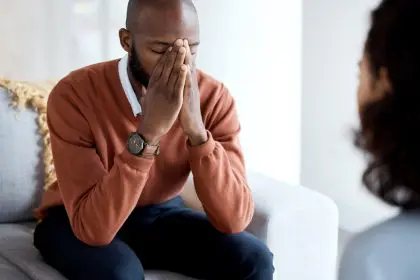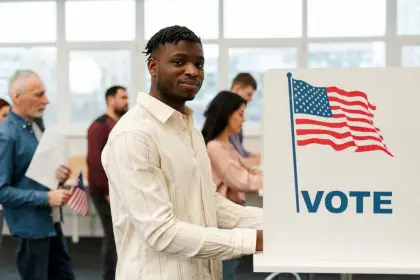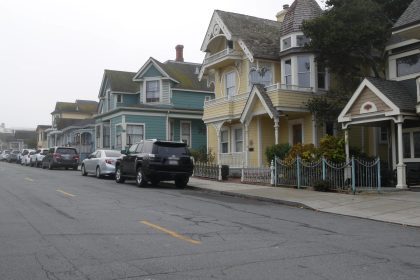Non-Hispanic Black and Hispanic men report fewer daily feelings of anxiety or depression than white counterparts, but mental health experts warn this statistic masks a deeper problem of underdiagnosis and cultural barriers to treatment.
Data from the National Center for Health Statistics shows Black and Hispanic men ages 18-44 report anxiety or depression at 6.1 percent compared to 8.5 percent for non-Hispanic white men. This gap likely reflects reluctance to seek help rather than better mental wellness, according to recent research.
The National Alliance on Mental Illness reports that while Black Americans face higher rates of severe mental illness diagnoses like schizophrenia, they receive fewer diagnoses for mood disorders such as depression and anxiety. Even with health insurance, Black patients often get overlooked for appropriate medication options.
Rodney Orders, a licensed psychoanalyst who owns Orders Counseling in Rockville, Maryland, focuses on providing affordable therapy for families of color dealing with anxiety, depression and addiction.
“For a lot of Black people and BIPOC individuals, the world is tough enough with being ‘othered’ and marginalized. Therapy is a place where we can heal from intergenerational trauma and the effects of systemic oppression,” Orders said.
He advocates normalizing therapy like routine medical care and warns that suppressing emotions can lead to increased stress, higher mortality and dangerous coping mechanisms like substance abuse. Orders emphasized the need for more Black mental health professionals who understand patients’ cultural experiences.
In Baltimore, Earl El-Amin works actively to eliminate mental health stigma in communities of color. As president imam of the Muslim Community Culture Center, El-Amin partners with organizations like Black Men Unifying Black Men to raise awareness.
El-Amin suggests making services available in community spaces like barbershops, recreation centers and schools. He promotes activities that build connection, including group exercise and shared meals.
“The best knowledge is the knowledge of the self. Once you have a working knowledge of self, you can evolve and grow not just as a Black man but as a human being,” El-Amin said.
NAMI advocates for evidence-based screening tools considering biological, psychological, social and spiritual factors to improve culturally sensitive care. The organization pushes for implementation of these enhanced diagnostic methods nationwide.
Studies show Black individuals often face overdiagnosis of severe conditions while mood disorders go unrecognized. This disparity persists even among those with healthcare coverage, highlighting systemic issues in mental health treatment.
Orders compares mental health care to physical checkups, arguing both deserve equal priority. His practice demonstrates the growing movement to provide accessible, culturally competent care focused on serving communities of color.
Beyond clinical settings, El-Amin recommends self-help resources including “The Invisible Ache” by Courtney Vance and “Visions of Black Men” by Na’im Akbar for personal development.
Breaking down barriers to mental health care requires sustained effort from health care providers, community leaders and individuals. Experts emphasize that expanding access to culturally aware treatment, fostering open dialogue and encouraging proactive self-care create vital pathways toward healing.
Through community-based solutions and increased representation in mental health professions, leaders like Orders and El-Amin work to ensure more men receive proper diagnosis, treatment and support on their mental health journeys.

















